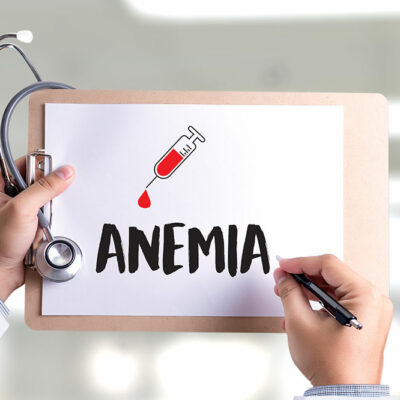
9 must-know early warning signs of blood clots
Blood clots occur when blood components thicken and form semisolid masses. They help reduce bleeding from an injury site. However, it is a severe health issue if clots form for no reason. Unnecessary blood clots can lead to severe complications like stroke and heart attack. Therefore, one must recognize their onset and see a healthcare professional for guidance. This post lists nine symptoms of blood clots, providing valuable insights for individuals to safeguard their health.
Swelling
A prominent indicator of a blood clot is swelling in a specific area of the body. The swelling often occurs in the legs, causing pain, tenderness, and a feeling of heaviness. It can be pronounced and make fitting into shoes or clothes difficult. Individuals may also observe redness or discoloration in the affected region.
Pain or tenderness
Persistent, unexplained pain or tenderness, especially in the legs or arms, could indicate a clot. The discomfort may worsen when standing or walking. Moreover, it may sometimes be accompanied by a throbbing sensation. The pain often feels deep and does not subside with rest or remedies.
Skin changes
Skin color changes, particularly in the affected area, can point toward a blood clot. The skin may appear reddish or bluish, indicating compromised blood flow. In some cases, the skin may feel warm to the touch. These changes result from poor circulation in the area around the clot.
Shortness of breath
Blood clots in the lungs, known as pulmonary embolisms, can lead to sudden and severe shortness of breath. This symptom should never be ignored, as it may be life-threatening; one should consult an expert immediately for evaluation and guidance. Shortness of breath may sometimes be accompanied by chest tightness or pain while taking deep breaths.
Chest pain
Chest pain, often accompanied by rapid breathing and a feeling of tightness, can be a symptom of a blood clot in the lungs. Individuals should seek healthcare attention promptly if they experience such discomfort. The pain may worsen with deep breathing, coughing, or swallowing.
Rapid heartbeat
A sudden increase in heart rate, especially when accompanied by other signs like chest pain or shortness of breath, may indicate pulmonary embolism. It requires immediate evaluation by a healthcare professional. When the blood clots, the heart must work harder to compensate for the decreased oxygen levels in the bloodstream.
Coughing up blood
Clots in the lungs can lead to coughing, particularly if they irritate the organ’s tissue. If someone coughs up blood or experiences persistent coughing, seeking attention is imperative. Coughing up blood, known as hemoptysis, can point toward pulmonary embolism.
Fatigue
Unexplained and extreme fatigue, especially in conjunction with other symptoms, may signal a blood clot. Fatigue occurs even without strenuous activity and may persist despite rest.
Fever and sweating
Some people with blood clots may experience fever and excessive sweating. These symptoms occur when the body treats the clot as a foreign object.
If anyone experiences these symptoms or suspects a blood clot, seeking immediate attention is crucial. Patients can mitigate the risks with prompt action, potentially preventing more serious complications.


